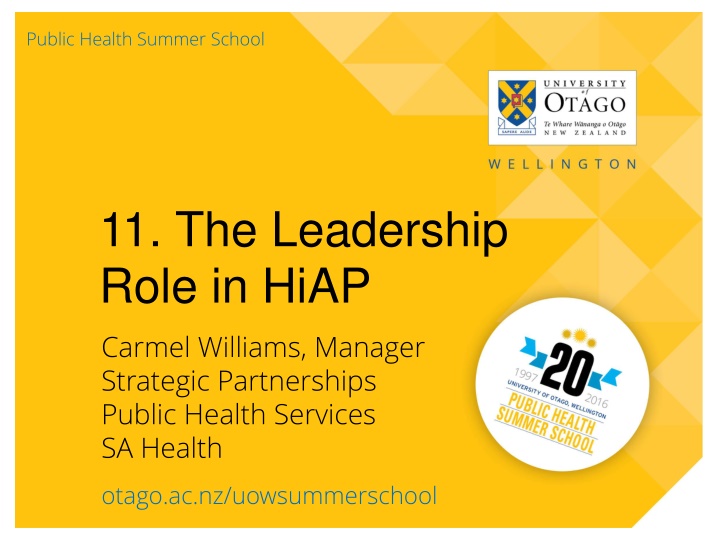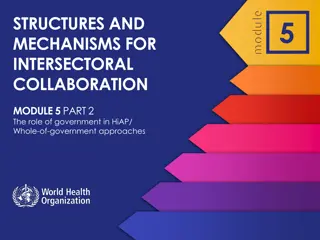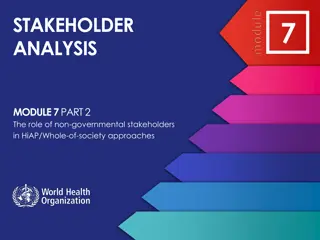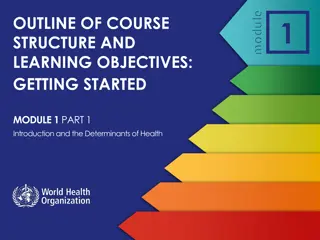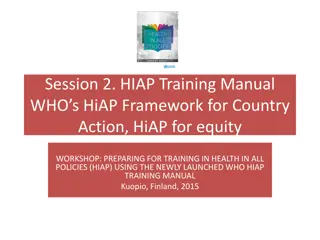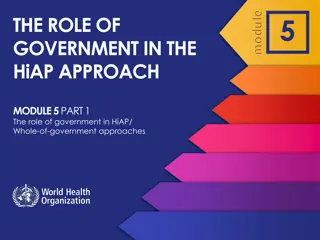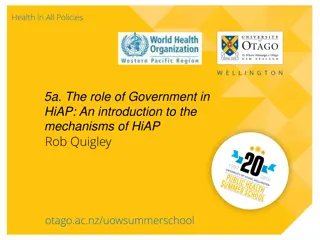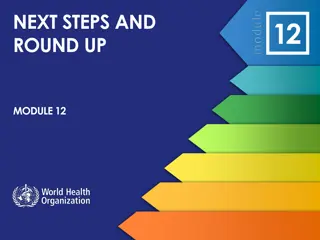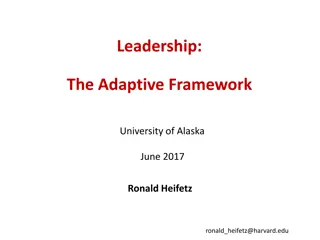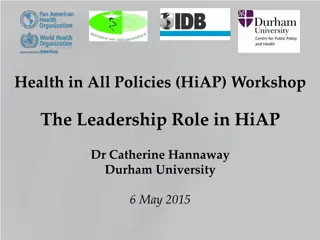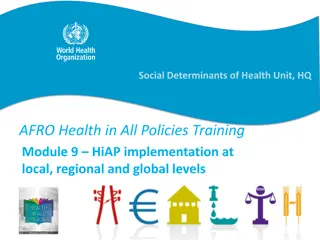11.The Leadership Role in HiAP
Explore the essential role of leadership in Health in All Policies (HiAP), focusing on the leadership's ability to understand, frame issues, and facilitate actions. Discover the necessary skills for HiAP leadership, such as solution-seeking, focusing on mutual gain, and managing differences effectively.
Download Presentation

Please find below an Image/Link to download the presentation.
The content on the website is provided AS IS for your information and personal use only. It may not be sold, licensed, or shared on other websites without obtaining consent from the author.If you encounter any issues during the download, it is possible that the publisher has removed the file from their server.
You are allowed to download the files provided on this website for personal or commercial use, subject to the condition that they are used lawfully. All files are the property of their respective owners.
The content on the website is provided AS IS for your information and personal use only. It may not be sold, licensed, or shared on other websites without obtaining consent from the author.
E N D
Presentation Transcript
Public Health Summer School 11. The Leadership Role in HiAP Carmel Williams, Manager Strategic Partnerships Public Health Services SA Health otago.ac.nz/uowsummerschool
Changing Role for MOH Changing Role for MOH PUT HEALTH FIRST HEALTH part of the SOLUTION HEALTH AS THE GOAL HEALTH AND HEALTH EQUITY AS A SHARED GOAL HEALTH IN THE LEAD SMART GOVERNANCE JOINED UP POLICY MAKING HIERARCHICAL STATE FOCUSED TACTICAL AND TECHNICAL FOCUS TECHNICAL POLICY FOCUS Kickbusch 2013 Based on South Australian Health in All Policies Summer School 2011
Values and Perspectives Values and Perspectives Shift in perspective so that all actors consider improved health and wellbeing as an overarching social goal that requires shared action Health is a precondition, outcome and indicator of a sustainable society Health is a social goal of governments 3
Goal Goal Multiply effort to create public value through a connected and collaborative government Benefits that accrue to the whole of government One Government 4
Leadership and HiAP Leaders can be seen as policy entrepreneurs they help with the understanding of an issue, they frame it and act as facilitators. Leaders today are not always individuals, they can also be organizations and movements that exert pressure to act on politicians and policy makers and they can be politicians. In the health arena we have many examples of such leadership through social movements such as the women s health movement and the HIV aids movement. They are is developing new dimensions through technology and social networks and social business. Kickbusch 2013 Based on South Australian Health in All Policies Summer School 2011
HiAP Skills HiAP Skills Solution seeking ways of thinking Invent/identify options for mutual gain Focus on interests not positions High levels of inter-personal and organisational sensitivity To deal with differences and manage difficult trade- offs Capacity to acknowledge others contribution Act brokers, facilitators, translators 6
Negotiate co Negotiate co- -benefits benefits mutual gain mutual gain Understand context Build relationships build trust be flexible Assume good intentions Create reciprocity share give credit Discover shared values Create common language Harmonize policy goals 7
Policy Champions Policy Champions Policy Champions
What is a Policy Champion What is a Policy Champion Policy Champions are person or teams: Willing and able to lead and manage the policy process Proactively promote policy reforms Publicly support the policies and foster support in others Frame the discussion of the issue Build consensus, attract resources Seize and create opportunities to move the process forward. Kickbusch 2013 Based on South Australian Health in All Policies Summer School 2011
Building HiAP Capacity Building HiAP Capacity https://www.youtube.com/watch?v=GPRH9nJNahA 10
